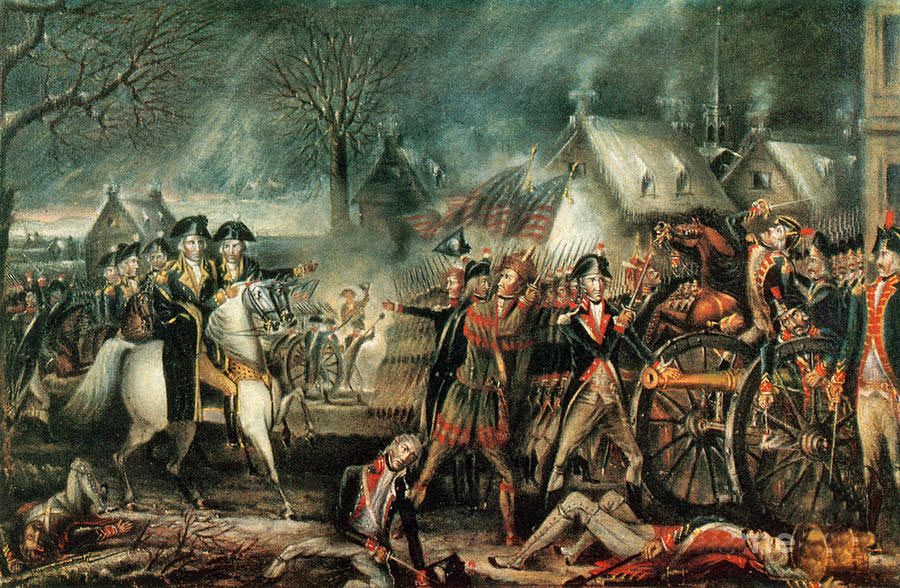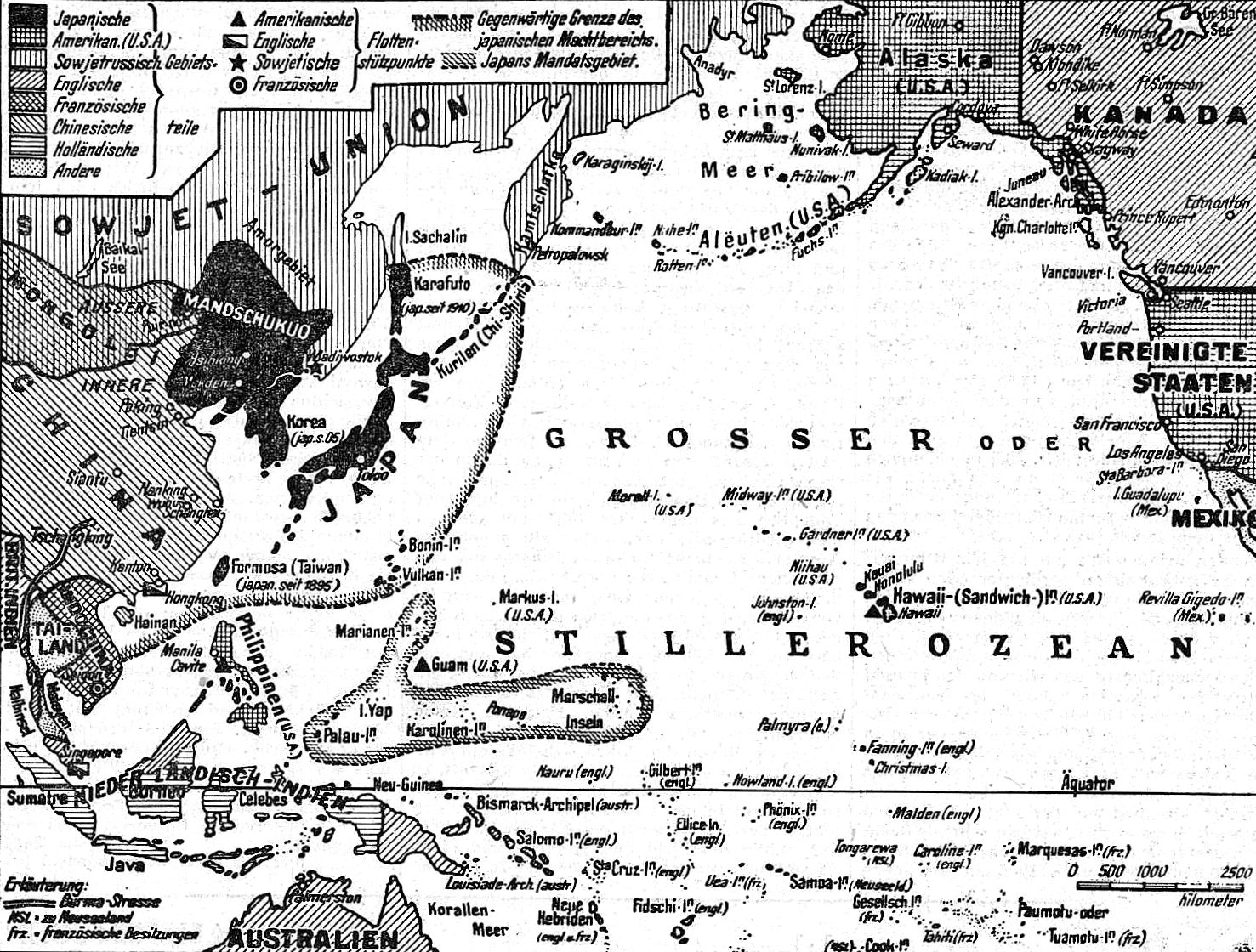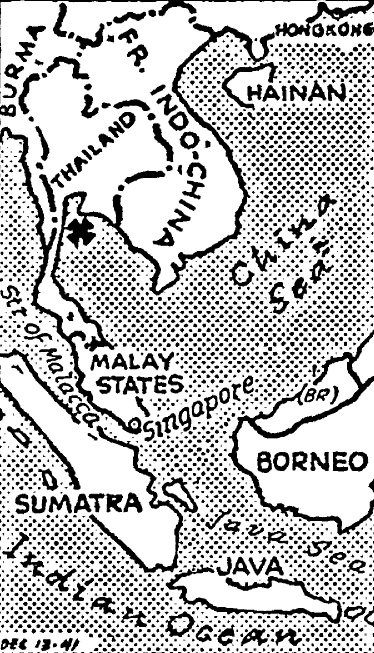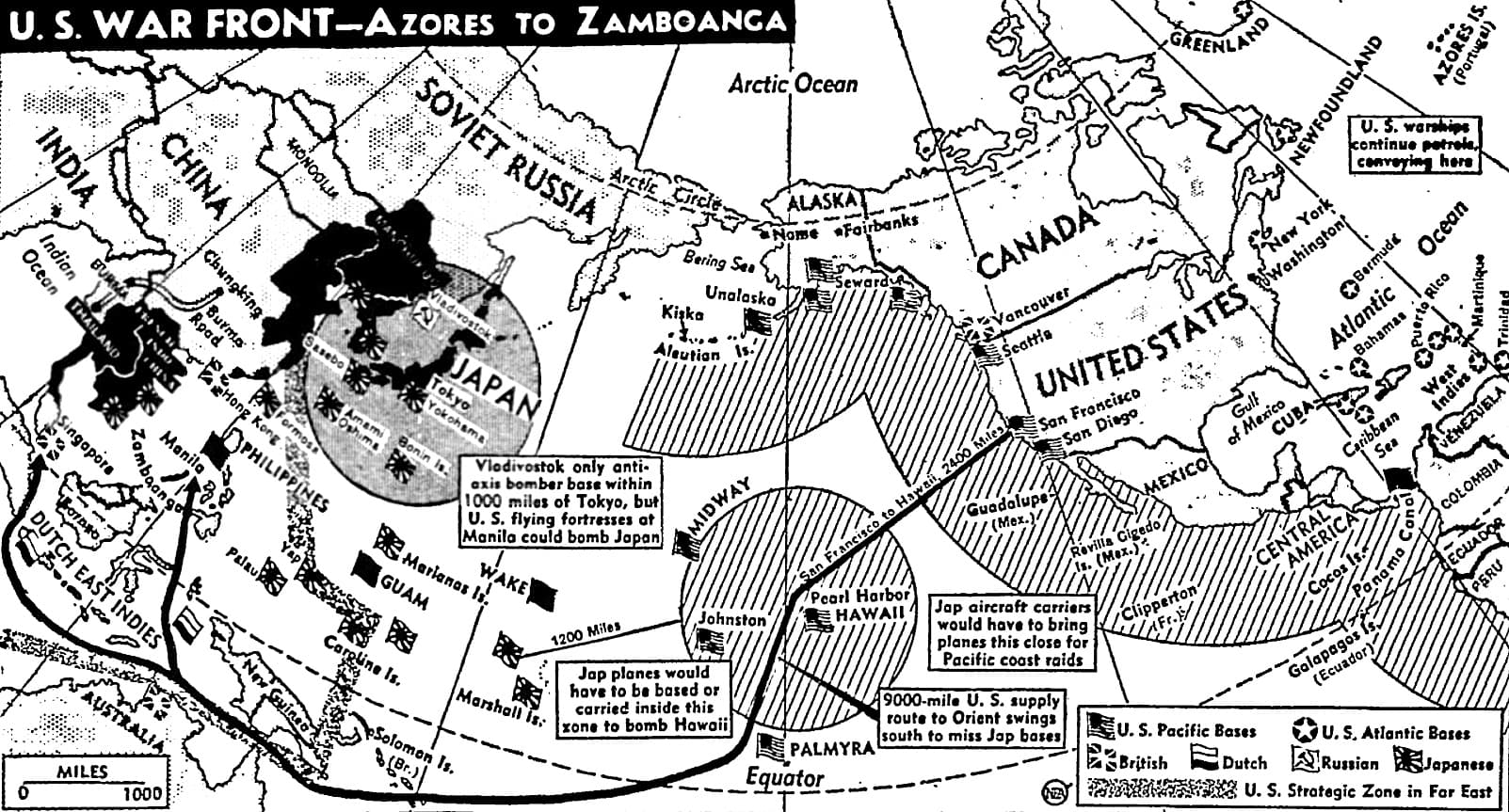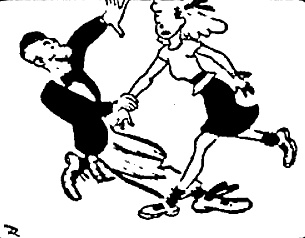Anti-Axis allies to have common strategy plans
British mistakes of early war days will serve as help to United States in arriving at mutual understanding for operations
By William H. Stoneman
LONDON – A common and carefully conceived grand strategy for the fighting forces in all parts of the world, the complete utilization of all human and material resources, and a really basic understanding between all of the Allies, with an absolute minimum of recrimination and suspicion, will form the basis for the world alliance against the Axis.
Bitter experience during the first 27 months of the war has demonstrated that a smashing victory over the combined power of Germany, Japan and Italy will require all these things. To a great extent they were impossible to achieve as long as the United States remained neutral, for no country could make definite planes as long as it could not count on our assistance.
Now for the first time a common grand strategy is conceivable – a really businesslike plan involving effective cooperation. Experience has shown that such a plan can work only if it is worked out in full harmony and involves full employment of all the bast resources which are not yet being exploited.
Must forget pride
If there is any pride left in the United States, Britain or Russia, it will either have to be forgotten or it may wreck the whole setup. That was the lesson of France.
Only a flimsy framework now exists for this kind of cooperation and the Allied governments will start practically from scratch. American naval activity in the Atlantic has required some of joint consultation and it is assumed that the threatening position in the Far East resulted in some advanced planning.
In view of the extensive use of American aircraft by the Royal Air Force, it is also assumable that the officers of the two air forces exchanged information and advice.
American observers have been watching the performance of American tanks in Libya. American Army, Navy and Air Force observers have been visiting London in a steady stream and a high official has been stationed here fairly permanently.
Mistakes will help
British mistakes, beyond the absence of intimate understandings with France and Russia in the past, will come to the joint assistance of the Americans and all the other allies.
The Americans must be prepared to assist the British in modernizing their production methods and the British must be prepared to accept their assistance.
While it is recognized that there is bound to be disagreement regarding the higher conduct of the war, regarding who shall do the bossing and regarding technical details, it seems reasonable to think that these questions can be ironed out by frank discussion.
Japan’s early smashing successes against both the United States and Great Britain have served to clip recrimination in the bud and to make the British, at least, realize that this is no time for poking fingers at anybody.
Four Jap attacks on Hawaii imperil all of island
By Frank Tremaine, United Press staff writer
HONOLULU (UP) – Joseph P. Poindexter, governor of the Territory of Hawaii, sat at his desk Sunday morning hastily scribbling an emergency proclamation when two Japanese bombs narrowly missed his residence and another blasted a hole in the capitol grounds.
None was spared from the dangers of the surprise Japanese attack on Pearl Harbor and the Island of Oahu Sunday, details of which it is now possible, with government sanction, to disclose.
The Navy Department in Washington announced that Secretary of the Navy Frank Knox has arrived in Honolulu.
There were four attacks in all – three Sunday and a fourth, lighter one, Monday morning – which claimed 1,500 American lives, wounded at least 1,500, and caused heavy damage. There has been no sign of an invading force since then.
Forty-nine civilians, including many Japanese-Americans, were killed and more than 100 wounded.
Twenty-four dive-bombers, their red “Rising Sun” insignia clearly visible, swung out of a clear sky in the early, quiet hours Sunday to open the attack. They swept in at low altitude over Ford Island in the middle of the naval base.
Within seconds, defending anti-aircraft batteries were sending a heavy barrage after them and puffs from the exploding shells filled the sky. Minutes later, heavy clouds of smoke billowed up from Pearl Harbor, 14 miles from Honolulu and from Hickam Field, in the interior of Oahu, northwest of the city.
The dive bombers were followed by a group of four-motored bombers which swung over the city to a warm reception of anti-aircraft fire. Torpedo planes skipped in at low altitudes and splashed their deadly loads into the water.
Navy vessels and ground establishments were the principal targets. Not a single military or naval establishment was overlooked by the raiders.
Wheeler Field and Schofield Barracks, also inland from Honolulu, were raided simultaneously. Witnesses said “bombs dropped like hail.”
Another attack was launched from the east side of the island at Bellows Field and the naval air station at Kaneohe.
Skim tops of waves
The dive bombers came in single file, at times just skimming the tops of the waves. Hidden as they were behind Ford Island, their approach was virtually undetected until they zoomed over the hill.
The first attack came a few minutes before 8 a.m. (1:30 p.m. Sunday ET). Within a few hours the U.S. battle fleet steamed out of the harbor to the west and soon the sound of heavy gunfire was heard.
There were unconfirmed reports that a Japanese aircraft carrier and four submarines had been sunk.
Delegate Samuel W. King of Hawaii announced in Washington that Gov. Poindexter had told him 20 Japanese planes were shot down during the attacks.
15 bombs hit city itself
An hour after the first attack and while bombs still exploded, anti-aircraft shells burst overhead and sirens wailed, all emergency precautions had been put into effect.
The residents, some still in night-clothing, took the raids with almost the same calm they had shown during the recent months of maneuvers. They gathered on hilltops to watch the grim battle.
Radio stations sounded the alarm and went off the air. Army, Navy, police, firemen and civilian defense wardens were called to their posts. Civilians were ordered off the streets.
At least 15 bombs hit the city itself. They left great raw marks. Several large downtown buildings were damaged. William Tyree, night manager of the United Press, who was at the bureau in the Honolulu Advertiser Building, said a bomb landed within 20 feet of the structure.
Lone Jap swoops down
Immediately after the first alarm, I drove out to the Army’s Hawaii Department Headquarters at Fort Shafter and the Army confirmed that the attacking planes were Japanese.
I reached Hickman Field within an hour and a half after the first raid and witnesses there told me the Japanese attacked in two distinct waves, totaling as many as 100 planes. While inspecting Hickam, a lone Japanese plane swooped down and machine-gunned the group of soldiers guiding me about the post.
We dived into a storage room and escaped injury but nearby autos were set afire by the bullets.
Hawaii is calm now
Hawaii is calm now. It pulled itself together. with rapidity. A veteran of Berlin’s first air raids said Honolulu citizens took theirs better than did the Germans despite the complete surprise of the Hawaiian attack.
So far as has been possible women and children have been evacuated from danger areas. All non-essential civilians have been removed from military establishments.
The Army warned against a waste of food or gasoline. Food stores were closed Tuesday for inventory but reopened Wednesday under orders to sell only their regular customers and in normal amounts. Gasoline was rationed a half tank at a time to a customer.
Had been storing food
“There is no immediate cause for alarm,” Gov. Poindexter announced, “and if everyone exercises good judgment the food situation can be worked out without causing anyone to suffer.”
For months Hawaii has been storing food in preparation for just such an attack. Residents have been encouraged to grow their own vegetables. Meat must be imported.
Most business houses are operating as usual, but closing at 4:30 p.m. to permit employees to reach their homes before the blackout begins.
The Federal Bureau of Investigation has taken a number of enemy agents and sympathizers into custody. Of the approximately 160,000 Japanese that number almost half Hawaii’s total population, less than a quarter are aliens. The rest are deeply loyal American citizens.
Praise Honolulu residents
The aliens are under scrutiny and may not possess firearms, explosives, cameras or any form of signal devices.
Praise for their conduct has been heaped on Honolulu’s residents by all civilian and military authorities. Gov. Poindexter praised them for “the splendid example they are setting for the mainland in calm, determined conduct.”
“Instances of valor are so great in number they are too many to enumerate,” Adm. Husband Kimmel said. “The same sort of selfless courage was displayed then (during the bombings) that will win this war.”
Monahan: ‘Two-Faced Woman’ played by Garbo
She fools her amorous hubby by masquerading as twins
By Kaspar Monahan
Ah, Garbo! She dances, she skiis, she swims, she loves. And that isn’t all. Garbo lays an egg.
In “Two-Faced Woman” the Divine Lady of the Cinema has to strike a pose of amorous imbecility and hold it for far too many reels for comfort. Even her most ardent idolators, I think, will weary of the monotony of it all.
“Two-Faced Woman” depends entirely on one gag. A slap-happy farce, flirting around the theme of marital infidelity, “Two-Faced Woman,” after a fairly amusing start, keeps hanging desperately to its single peg and the result is repetitious silliness to an embarrassing degree.
The gag is this:
Garbo as a ski instructress named Karin meets Melvyn Douglas as a wealthy magazine publisher named Larry in an Idaho winter resort. She’s idealistic, a lover of the simple life and the outdoors – and he marries her. He returns to New York without her and she, after a period, follows him there – only to discover that he’s carrying on an affair with a sophisticated woman.
![]()
So Karin masquerades as her nonexistent twin sister, Katharine – pretends to be an international adventuress of scandalous past. Larry, the dope, falls for the ruse – also falls for the bogus Katharine.
Seems that a few fancy clothes, including a diaphanous pajama getup, are enough to convince dumb Larry that the woman he married and this fraudulent siren are two different women.
Now, “Two-Faced Woman” might work up a fair amount of humor – if it didn’t continue with the hoax throughout its length. Miss Garbo is forced to go about with a banal expression of a light lady, simply ga-ga over every male’s attention for reel after reel. And when she gets Larry into her hotel room the antics of both become incredibly foolish. All the time, you see, she is hoping that Larry will remember his Karin of the Idaho mountains, and repulse the advances of this Jezebel. He doesn’t – and Karin is heartbroken.
From then on, the plot doesn’t improve, nor the acting either, Miss Garbo’s method of depicting passion is a combination of husky, honey-dripped sounds, wide open adenoidal mouth and a soul-hungry look in her eyes. A little bit of this goes a long ways – too long, Mr. Douglas has to become more than slightly idiotic himself.
Frankly, Constance Bennett steals the movie, if that’s a compliment, by playing to the hilt a hard-bitten, fierce-tempered woman, who wants Larry for herself. Ruth Gordon and Roland Young also outshine the two principals; although the two principals shouldn’t be censored too severely. Nobody could play their roles and make them anything but what they are: inexcusably silly roles.
![]()
The Penn is showing “Two-Faced Woman,” which next Thursday will be succeeded by “The Chocolate Soldier,” with Nelson Eddy and Rise Stevens, the soprano who became a top-notcher with the Metropolitan Opera Company. By rare coincidence, the plot of this is somewhat similar, only in “Chocolate Soldier” the husband tests his wife’s fidelity by impersonating another man. He does that by wearing whiskers, lending some credence to the hoax. Unfortunately, Garbo doesn’t wear whiskers. Only the plot does that. But “Chocolate Soldier” has music – and an operetta isn’t supposed to have a believable plot.
Yesterday I listed “Louisiana Purchase” as the holiday film for the Penn. But the movie people slipped up. There’s an agreement that the movie cannot show in any town until eight weeks after the stage original plays that city. So the filmusical won’t appear at the Penn until the stage show has played the Nixon. And the date for that has been set back again.
“Soldier” will show for six days and will be followed on Wednesday, December 24, by “H. M. Pulham, Esquire.” A musical, “Babes in Arms,” will open New Year’s Eve.
![]()
Opening today: “International Lady,” with Ilona Massey and George Brent at the Stanley. On stage – Earl Carroll’s “Vanities.”
Giants get Johnny Mize
By Steve Snider, United Press writer
CHICAGO (UP) – After 11 days of dealing in which the New York Giants poured out an estimated $90,000 in cash and players, the old defensive era of the Bill Terry regime gave way today to the fence-busting ideals of little Mel Ott mightiest home run hitter in National League history.
Big Johnny Mize of the St. Louis Cardinals, dangled as trading bait over at least two other clubs, finally wound up with the Giants in a third major deal which has cleaned house to such an extent that four of the eight everyday starters will be new to the Polo Grounds in 1942.
Already General Manager Terry and Field Manager Ott had acquired Third Baseman Bill Werber from Cincinnati and Hank Leiber, a former Giant outfielder, from the Chicago Cubs. Sale of Second Baseman Burgess Whitehead to Toronto leaves that spot open for Young Connie Ryan from Atlanta.
And they’re not through yet.
“We’re after another pitcher,” Terry said as he departed for Memphis. “We had to give up Bob Bowman in the Leiber deal and Bill Lohrman in the Mize deal. Maybe we’ll even try for two more pitchers.”
The Giants-Cardinals swap sent the belting first baseman to New York for Lohrman, a 9-10 pitcher last season, Catcher Ken O’Dea and cash estimated at between $40,000 and $50,000. Mize’s style is ideal for the short right field fence in the Polo Grounds.
He hit .316 for the Cards last season, including 16 homers, 38 doubles and eight triples, driving in an even 100 runs. In his six major league seasons at St. Louis, he belted 158 home runs. Ott, himself, hit 27 home runs last year, bringing his record total to 415.
For Werber, the Giants gave up an estimated $15,000 and for Leiber paid $20,000 in cash plus Bowman.
As the winter major league session drew to a close yesterday, the magnates decided on a “business as usual” plan until an unforeseen wartime emergency arises.
All-Star gate to armed forces
The only mention of the war in the joint meeting of Landis and the two leagues was a proposal to turn over all proceeds of the All-Star Game at Brooklyn July 7 to a fund for baseball equipment for men training in American armed forces.
Larry MacPhail, president of the Brooklyn Dodgers, pledged the game will produce at least $100,000. The commissioner, with a gift of $20,000 from baseball, the two leagues with $2,000 each and Baseball Writers Association of America with $1,000 started the fund.
A proposal to raise the limit on night games from seven to 14 was defeated despite a plea by Griffith that government employees and defense workers in the nation’s capital would have no time for afternoon baseball. Griffith urged unlimited night baseball, indicating he hoped to play five nights a week.
Major-minor pact extended
In extending the major-minor league agreement for one more year, the majors declined action on the controversial amendment to simplify player options among affiliated clubs and will retain the present code. Thus settlement of differences between the commissioner and chain store baseball was postponed until 1942 when a new agreement must be made.
A $20,000 appropriation for American Legion baseball was continued. An exhibition was scheduled between a National and American league club at Doubleday Field, Cooperstown, New York, date unannounced. Net receipts will be split between the field and baseball museum.
Only daylight deals sent Pitcher Verne Kennedy from Washington to Cleveland as the first installment on replacing Bob Feller, and Burgess Whitehead from the New York Giants to Toronto of the International League. Both were cash transactions.
Tigers, Nats in trade
DETROIT (UP) – The Detroit Tigers today traded Outfielder Bruce Campbell and Infielder Frank Croucher to Washington for Outfielder Roger Cramer and Infielder Jimmy Bloodworth.
It was a straight player deal and no cash was involved, according to owner Walter O. Briggs Jr. of the Tigers.
California-Georgia Tech game canceled
BERKELEY, California – The University of California-Georgia Tech post-season football game was called off today because of war conditions. It was to have been played here December 27.
Kenneth Priestley, California graduate manager, said the game was canceled at request of the Georgia Tech authorities because a number of the Southern players expected to be called into national service immediately.
Priestly said that the University of California intended to operate its athletics schedules this winer as fully as conditions permitted. Games will be played as scheduled unless canceled on request of the other schools.
Report shows U.S. buys own bond issues
Reserve makes purchases at first sign of weakness
WASHINGTON – Official confirmation that Federal Reserve authorities threw their organized support behind the U.S. government security market in the first period of weakness that followed the country’s entry into the war was forthcoming today in the system’s weekly condition statement for the period ended December 10.
The bank report disclosed that the system’s open-market account bought more than $12,000,000 of Treasury bills while member banks in New York bought substantial amounts of government bonds, bills and guaranteed securities.
No data were given on the market support contributed by other member banks across the country but the volume of buying reported by the system and the New York banks indicated that the total operation was extensive.
It was the first time since the invasion of the low countries in May 1940 that official support for the government bond market had been required.
Outstanding loans rise
New York member banks in the December 10 week, it was disclosed, increased their outstanding loans and investments by $88,000,000 to $12,220,000,000. The banks’ investment holdings were up $61,000,000 on the week while their loan volume rose $27,000,000.
Holdings of U.S. government bonds by the New York banks were up $38,000,000 to a new all-time high of $3,378,000,000, while their holdings of Treasury bills rose $4,000,000 and investments in Treasury notes declined $1,000,000. The banks’ holdings of government-guaranteed securities increased $20,000,000.
The banks’ loans to commerce and industry were reported at a new 10-year high of $2,566,000,000, up $24,000,000 for the week, while their other loan classifications showed only small changes.
Excess reserves drop
The statement covering operations of the 12 regional banks of the Federal Reserve System disclosed their holdings of federal obligations at $2,196,470,000 on December 10, up $12,370,000 for the week.
The bank statement also showed that excess reserves of all member banks, after increasing for four successive weeks, turned down in the latest period, although actual reserve balances continued upward.
Excess reserves were placed at $3,840,000,000 as of December 10, a decline of $20,000,000 for the week, while actual reserves were up $41,000,000 at $13,219,000,000.
The expansion in actual reserves was offset partially by an increase of $117,000,000 in monetary circulation to a record high at $10,834,000,000.
Trading is suspended in Axis powers bonds
NEW YORK (UP) – The New York Stock and Curb Exchanges today officially suspended from trading all Japanese, German and Italian dollar bonds listed on those markets.
Earlier in the week both exchanges had announced that they were “holding up” dealings in those securities pending clarification of their status from Washington.
The Italian and German issues had been in complete default prior to the declaration of war and their securities on the Stock Exchange had been selling at 6.7 and 14 cents on the dollar, respectively, but full debt service had been maintained on the Japanese loans up to the outbreak of fighting and their market value averaged about 40 percent.
The Stock Exchange listings comprised 54 German bond issues with a combined face value of $537,039,840 and a market value of $36,235,940 as of November 29; nine Italian issues with face value of $119,745,000 and market value of $16,652,674, and 13 Japanese issues with face value of $296,663,455 and market value of $119,136,801.
Navy showdown may come soon in East Pacific
By Leland Stowe
CHUNGKING – Singapore’s defense appears likely to become more critical as a result of the successful Japanese landings and seizure of airfields within the northern boundary Malay states, the loss of the Prince of Wales and the Repulse, and the invaders’ threatened superiority in manpower and airplanes.
It is reported that the Nipponese also have landed tanks. If this is true and they are in any numbers, they are a menace to Singapore.
The battle for sea power in the Pacific may be fought within four to eight weeks.
With the Japanese holding the airfields at Patani and Kota Bharu, they may be able to dispatch bombers within 500 miles of Singapore. The invaders also are reported at Kuantan which, if held, would give the land forces a grip on s main highway less than 25 miles from Singapore.
The swift accumulation of two or more Japanese divisions on the upper Malaya Peninsula now seems assumed, while the transfer of large air forces from Indo-China must be feared.
All the reinforcements the Dutch East Indies can spare, including tanks and planes, probably will have to be rushed to Malaya as soon as possible. It is also believed that American planes and warships will be needed if the Philippine situation permits their release.
Singapore is the chief and most important objective of the Axis powers.
One officer said: “If we lose Singapore, the war will be prolonged three to five years.”
Australia tightens air raid precautions
MELBOURNE (UP) – Australia was under government by decree today, its cabinet ministers granted unlimited spending powers in urgent matters, and the public accepted further war restrictions cheerfully.
Air raid precautions were strengthened. It was announced that no further test raids would be held and that the next blast of the raid sirens would herald the approach of enemy planes. Gasoline, already rationed, will be restricted 20 percent additionally in February for business and pleasure vehicles and 10 percent for non-essential industries.
Foreign Secretary Herbert Evatt messaged President Roosevelt “profound appreciation” of his and Secretary of State Cordell Hull’s efforts to maintain peace in the Pacific.
Mr. Roosevelt replied: “We did our utmost to keep peace in the Pacific, but our enemies decided upon aggression beforehand. This now is a world war in a true sense. We are in it with you and you will not find us wanting. I need not tell Australians to keep a stout heart. I know you will and we will win.”
Air Minister Arthur S. Drakeford said the Royal Australian Air Force had suffered losses against the Japanese in Malaya.






